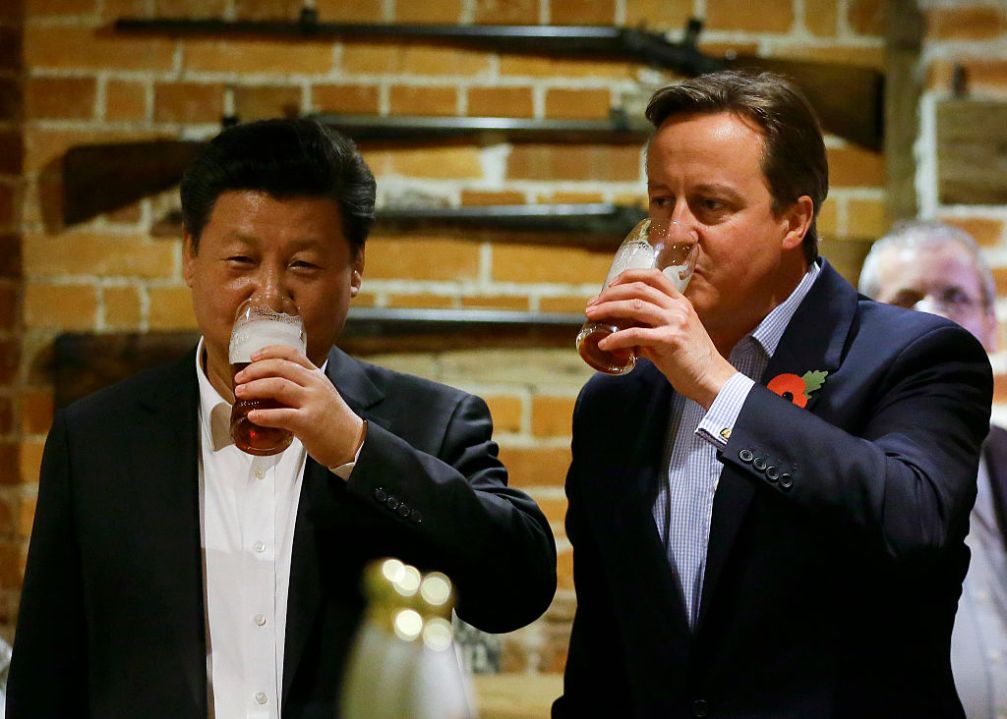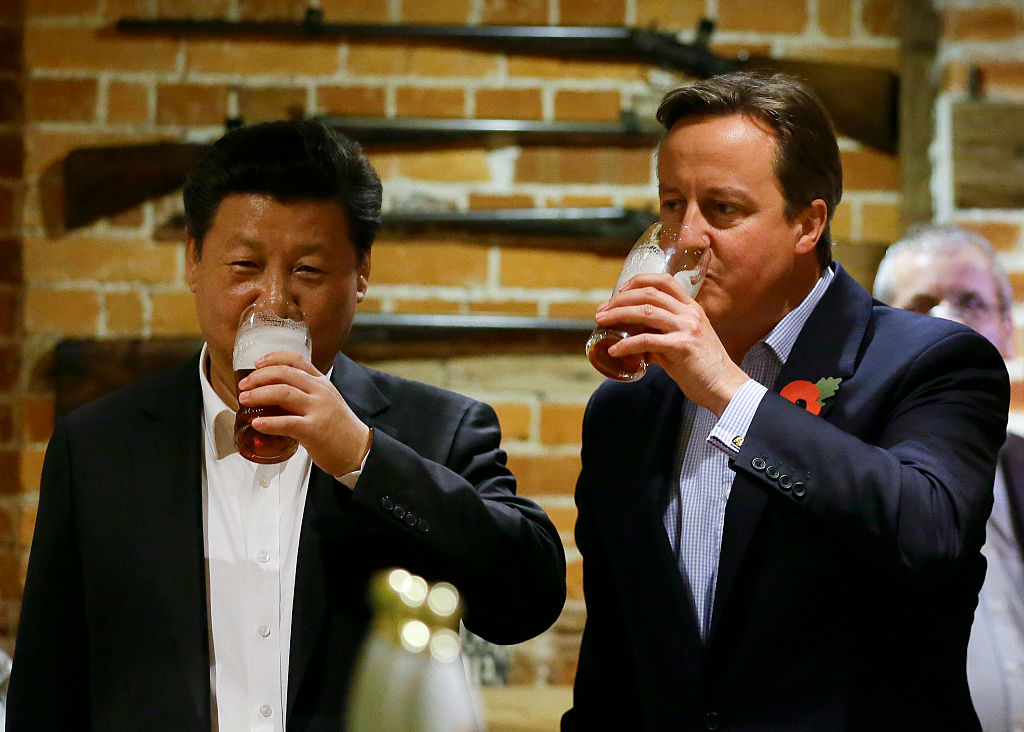In the years following his resignation as prime minister, David Cameron appeared to become the poster child for elite capture by the Chinese Communist party. This is a term used to describe the process by which the CCP co-opts former officials and business people, usually through lucrative jobs and contracts with CCP-linked entities. Usually the officials have retired, or at least are beyond their best-by date, but still deemed useful for extending CCP legitimacy and influence. Rarely – like the reminted Lord Cameron of Chipping Norton – do they return to positions of considerable political power, dealing with the very government that helped keep them in comfort over recent years.
That is worrying enough in itself, but all the more so because of a woeful lack of transparency by either Cameron or the Foreign Office. This week the Times disclosed that the department had refused to say whether Cameron had recused himself from parts of his role as foreign secretary due to his previous financial interests.
It is not unusual for ministers to recuse themselves from policy areas in which they might have a conflict of interest, but these are rarely treated with the secrecy of the Foreign Office. Indeed, it is often seen as a badge of propriety. Admittedly it is a tricky one for the Foreign Office. China is perhaps the biggest global challenge Britain faces – an ‘epoch-defining challenge’ to the international order, as the government’s latest defence and foreign policy document puts it. For a foreign secretary to step back from elements of China policy, so central has it become, would seem rather like the Chancellor agreeing not to deal with tax policy. There’d be little point in his being there, in other words. Absurd yes, but so is the alternative of a minster tainted by previous and seemingly opaque business dealings that can only cast a lengthening shadow over his diplomacy with Beijing.
Since resigning as prime minister in 2016, Cameron has been involved in numerous money-making ventures linked to China. These have included a $1 billion (£800 million) China-UK investment fund, for which Cameron unsuccessfully sought hundreds of millions of dollars from the China Investment Corporation, an arm of the state. Last year, parliament’s intelligence and security committee said there was a chance his role role as vice-chairman of the fund, was ‘in some part engineered by the Chinese state to lend credibility to Chinese investment and to the broader Chinese brand.’ Cameron also endorsed and promoted Port City Colombo, a $3 billion (£2.4 billion) project in Sri Lanka, which is being developed by a Chinese state-owned entity and is a part of Beijing’s Belt and Road Initiative (BRI).
Cameron fired the starting gun for a scramble for Chinese money
On one visit to China in 2018, Cameron met Xi Jinping and attended a ball in Shanghai, where participants could pay £12,000 for dinner and a photograph with him. He spoke (alongside Prince Andrew) at a 2019 Chinese study tour to London and Cambridge for which Chinese officials and investors paid £7,500 a ticket, and where the organisers plugged a ‘three-hour close-up exchange with Cameron’.
Much of this busy China schedule has been pieced together by dogged researchers at the Inter-Parliamentary Alliance on China (IPAC); Cameron himself has largely refused to provide details of his ventures or what he was paid for them, though it has been reported that in the aftermath of Brexit in 2016, when he was represented by the Washington Speakers’ Bureau (WSB), he was able to charge £120,000 an hour.
It was Cameron who as prime minister heralded the so-called ‘golden era’ of relations with China, during which the UK was to be China’s ‘best partner in the West’. The mood was captured during Xi’s state visit in 2015, during which he and Cameron were photographed, pints in hand, in a sixteenth century Buckinghamshire pub called the Plough – which was subsequently bought by Chinese investors. CCP-linked entities were invited into the most sensitive corners of the British economy, including advanced telecoms and nuclear power – deals from which the government is still trying to extricate itself.
That period is increasingly regarded by some as one of unbridled greed and gullibility towards Beijing, Cameron firing the starting gun for a scramble for Chinese money; from business to academia, it often seemed the only due diligence on Chinese investment was the number of zeros on the cheque. Cameron appeared to carry this laissez-faire approach to business with China into his post-political life, persisting with his money-making well after the shine began to come off the ‘golden era’, and Beijing’s growing hostility became impossible to ignore.
When Cameron returned to government last November he was congratulated by Beijing, with China’s foreign minister urging London to ‘establish a correct understanding of China.’ The CCP’s Global Times said it hoped the appointment would ‘awaken the remnants of pragmatism among some British people.’ For his part, Cameron has said that the UK ‘will continue to engage with China where it furthers our interests’, while conceding that China has become ‘more aggressive and assertive’, and that ‘a lot has changed’ since he had a pint with Xi.
He has reportedly been given a lot of leeway at the Foreign Office by the Prime Minister – though not to the extent of revealing full details of his business dealings with Beijing or their impact on his ability to do his job. It’s almost possible to feel sorry for the mandarins of King Charles Street for whom the only consolation is that the absurdities surrounding Cameron have only a few more months to run.








Comments